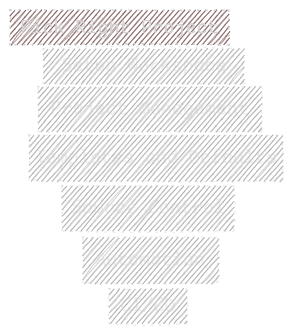
Your project is other peoples 'holiday photos'
Don't assume an audience for your idea.
Don't invest a lot of time and resources before establishing if anyone would actually like it/use it.
If you can't handle me at my best
Test the 'ideal' example before developing systems and scale. E.g. if someone wouldn't pay for a person to manually
fix and sort their schedule, they definitely won't pay for an automated system that does it worse. Don't invent the technology
if you can't sell the human version first.
Design around solving problems. Don't tell people what features you HAVE, ask what they want/need and deliver THAT.
Don't assume you see something other people don't. Assess the market, look for other/similar ideas and see if they succeed/fail and why.
Treat it like a hobby, that's all it'll ever be
Do consider your time as a paid resource.
If it takes you 6 months to make its not 'free to develop' It costs '6 months of a full time developer'
Don't make a project that has costs higher than the value/market.
if you 'succeed' by pulling all-nighters and not treating your time as part of the production cost,
congratulations, you've won the requirement... to do that forever.
Feel free to have hobby projects, and/or work projects. Just don't pretend one magically turns into the other.
Nobody wants a 'Vibe Surgeon'. The project will only ever be as successful as you take it seriously.
Don't treat your project as a 'demo project'. If you refuse to think about/see it as a project, so will your audience. Care about things like initial launch flow early.
If you have to keep saying 'that'll be fixed in the real thing' then its not a real thing and will be treated as fake as you do.
Actually yes, DO judge a book by its cover
It won't tell you the totality of its quality, but if someone can't make their idea appealing, then they don't
understand their audience and will most likely be a mismatch in content too.
Appearance matters. Yes make it work first but in this day and age it is pretty trivial to make something look professional with very little effort. At least cover
your bases with colour theory, general ui/ux and so on.
Play to your strengths
Pick a project you can do. Don't pick a project that hinges on skills you don't have. Its fine to hire, but its not fine if your project fundamentally stops if you are the
only one capable of working on it.
If you are making a game and are a writer, make writing the focus.
Musician? make music the focus.
Not a programmer? Don't design a game that requires a complex
networking stack.
Every project is larger than you think. By orders of magnitude. There is a reason each part of a project is its own job.
- audio
- marketing
- colour
- design
- brand/style guide
- concept
- ui
- ux (yes they are different things)
- motion design (still different things)
- toolchain
- project management
- marketing
and 100 more depending on the project. Assume you will suck at some of them, pick the ones you can do, farm out the ones you cant.
Don't expect people to match your energy
Nobody wants to work on your idea. If you want passionate employees find a way to make it 'their' project too. Give them buy-in.
Make someone in-charge of an area they can express themselves in, have creative control etc.
If looking for contributors to open source etc, people won't help you unless they share the vision. Don't sell them on what you have/want
find out what they value and sell them on that.
Conclusion
In short a good project (that is a product) should
- demonstrably solve a need/want
- have a provable audience interested in its outcome
- have a team capable of producing the product
- have a scope that defines milestones to reach
- have a timeframe that goes no longer than 2 weeks without a provable result
- should be thought of through the eyes of the audience at all times
- be marketable in its display or its idea
- have a defined metric for 'it failed' or 'it succeeded' that isn't nebulous and vague